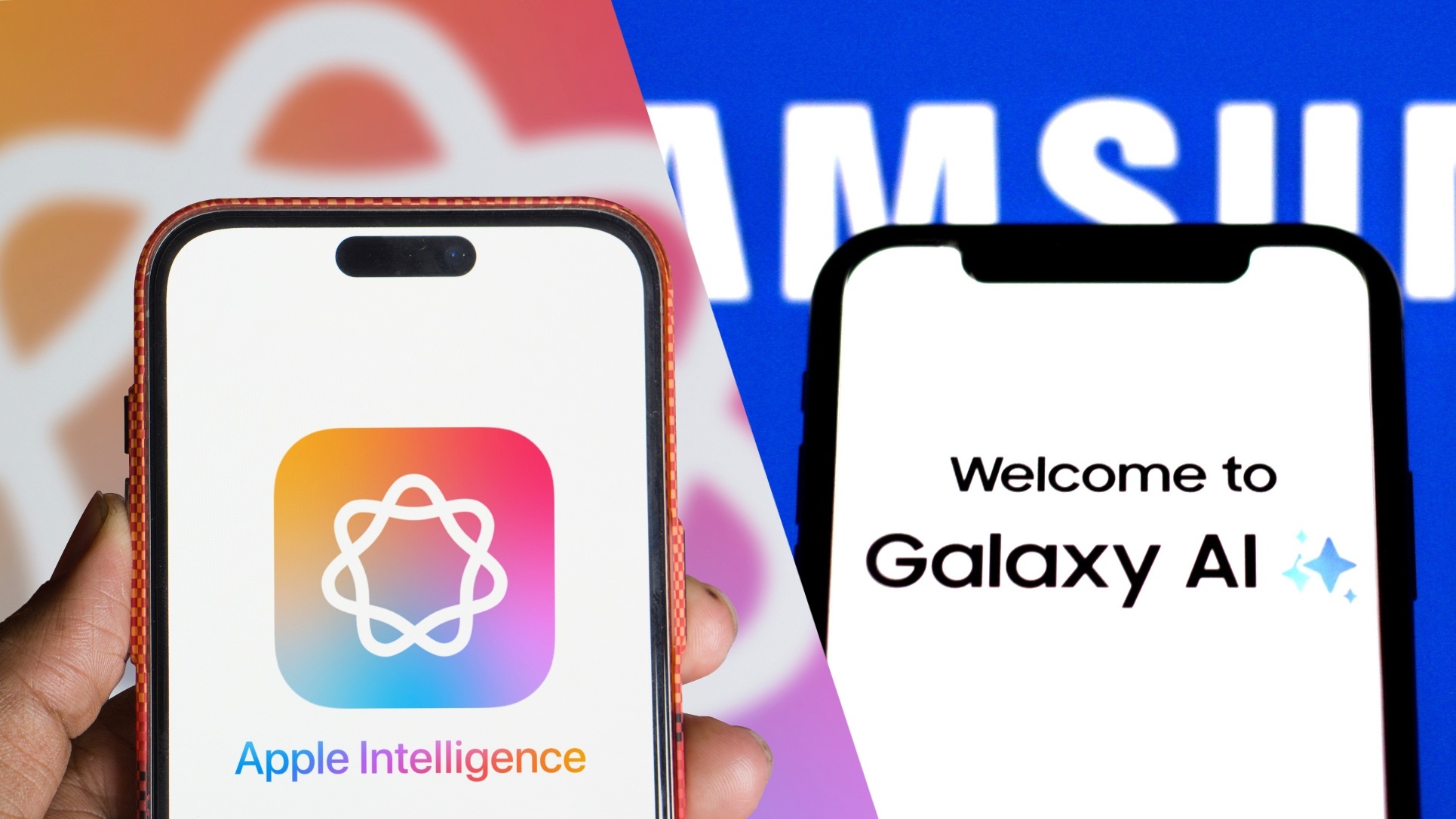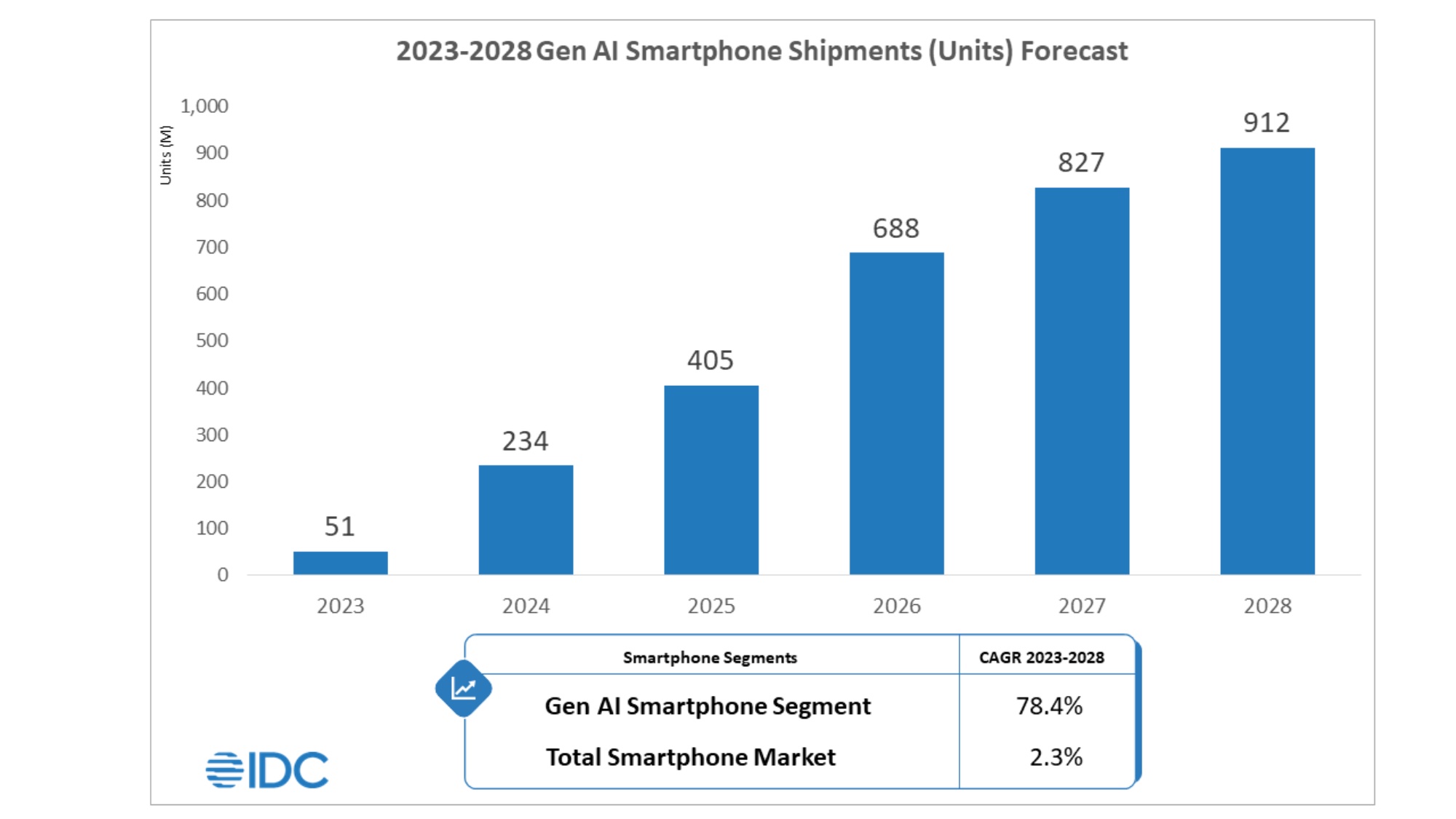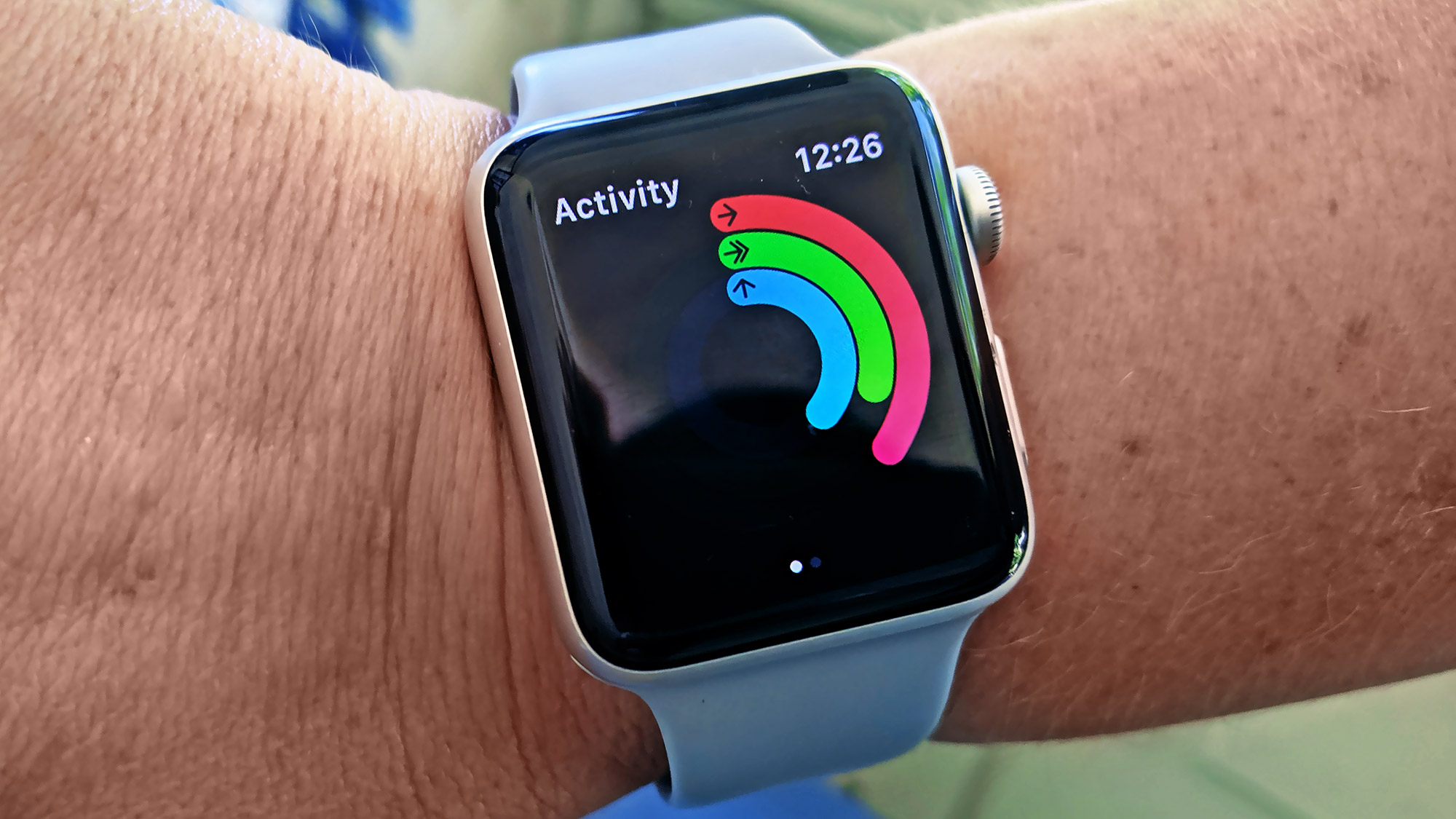Apple Intelligence and Galaxy AI to help spark AI smartphone explosion — growing 364% in 2024
Smartphones are driving the AI revolution

Over the past year, we've seen the best smartphone makers embrace AI in a big way. Samsung and Google marketed the Galaxy S24 and Pixel 8, respectively, with a huge focus on buzzworthy AI upgrades, and Apple's take on generative AI with Apple Intelligence is expected to make waves this fall with the iPhone 16 series. Smartphones are driving the AI revolution into our lives, and experts predict it will only ramp up from here.
A Friday forecast from the IDC, a consumer data research firm, estimates that Gen AI smartphone shipments will reach 234 million units by the end of the year — a year-over-year growth of 364%. For reference, IDC defines Gen AI smartphones as devices with a system-on-a-chip (SoC) capable of running on-device generative AI models that leverage a neural processing unit that meets certain benchmarks. Some chipsets it lists that meet this standard are the Qualcomm Snapdragon 8 Gen 3 found on the world's best Android phones and the iPhone 15 Pro's Apple A17 Pro processor.

Despite trends that consumers are holding onto their phones for longer without upgrading, the IDC anticipates Gen AI on smartphones "to drive significant demand over the coming years." That's in part because of the bevy of new AI-powered features enticing people to upgrade to gain access, but also in part because of how IDC believes AI will reshape the app-dominated mobile experience we've known thus far (more on that in a bit).
The IDC anticipates that Gen AI smartphone sales will soon outperform the non-AI-enabled smartphone market. By 2028, it projects Gen AI smartphone shipments could reach 912 million units — the lion's share of the roughly 1.3 billion smartphones sold each year.
AI phones = App-less world?
Since the first smartphones, apps have come to dominate how we interact with our handsets. But that could change with AI. On-device generative AI could render these apps obsolete, using data contextually to assist users in all the ways we've come to expect of our phones.
"This 'app-less' world will revolutionize the user experience, requiring the phone to better 'know' its users while ensuring personal data remains private and secure," said Francisco Jeronimo, IDC Europe's VP of data and analytics, in Friday's forecast.
We've seen the beginnings of this in AI features already available on smartphones. For example, the Samsung Galaxy S24 Ultra features real-time voice translation and can generate summarized transcripts based on voice recordings. The Google Pixel 8 Pro can also use AI to summarize recorded conversations.
Sign up to get the BEST of Tom's Guide direct to your inbox.
Get instant access to breaking news, the hottest reviews, great deals and helpful tips.
Some of the features tipped for Apple Intelligence include rewriting text, generating images from text and a more conversational Siri digital assistant. Speaking of digital assistants, with all these AI upgrades, the IDC anticipates we'll come to operate our phones more with our voice than touch. It'll be more akin to talking to a personal assistant that works for you than tapping at a device.
Case in point, one of the most impressive new Siri features Apple showed off at WWDC 2024 was in-app actions, which allows Apple Intelligence to work across a number of apps, including third-party ones, where Siri can then interact with them on your behalf. So even if AI doesn't completely replace apps, you might wind up interacting with them yourself a lot less.
These improvements in intelligent voice assistants could very well be enough of a selling point to convince many users to upgrade their smartphones. And given the huge appetite for AI we've seen thus far, the IDC's forecast doesn't sound far off.
More from Tom's Guide
- Apple Intelligence launches with iOS 18 — but these features will arrive later
- 7 best mobile AI apps for iPhone and Android
- I pitted Google Bard with Gemini Pro vs ChatGPT — here’s the winner

Alyse Stanley is a news editor at Tom’s Guide, overseeing weekend coverage and writing about the latest in tech, gaming, and entertainment. Before Tom’s Guide, Alyse worked as an editor for the Washington Post’s sunsetted video game section, Launcher. She previously led Gizmodo’s weekend news desk and has written game reviews and features for outlets like Polygon, Unwinnable, and Rock, Paper, Shotgun. She’s a big fan of horror movies, cartoons, and roller skating.










